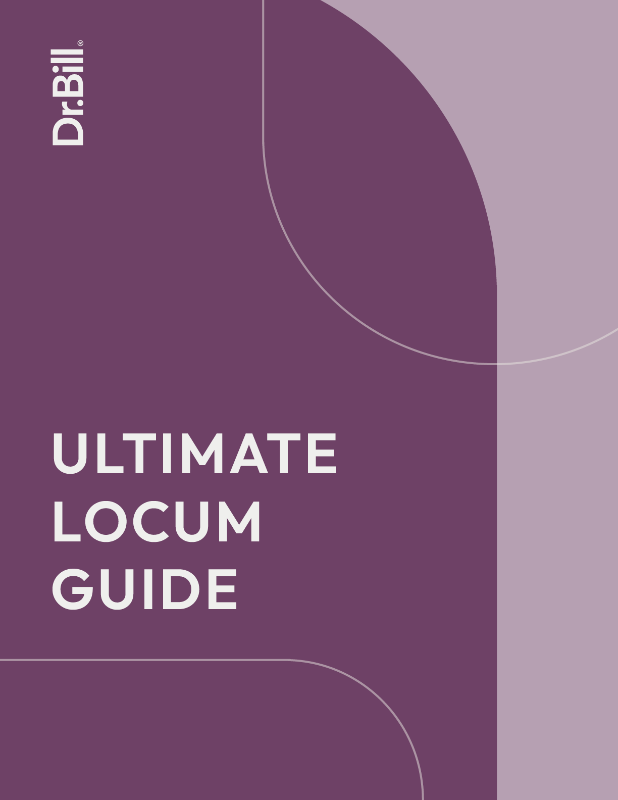It’s easy to think that as a physician you will always stay passionate and engaged with the work you do. This is true for many doctors, as you have likely chosen your specialization with a fair amount of care and drive for the job, your role in the community, and your patient’s well being. But rough patches exist even for doctors. Work stress can cause burnout, long hours can leave you yearning for a work-life balance, or you could even find that the routine of your clinical practice makes you miss the challenges of medical school. Whichever reason, you’re not alone: 48% of physicians face burnout at some point over the course of their working life. If you’re looking for how to be happy with your career, here are some of our best tips:
1. Be Flexible with Your Hours
In many medical specializations, working long hours are unavoidable. However, working these kinds of hours consistently, with no breaks, vacations, or downtime, is a recipe for burnout. So how can busy physicians balance career and happiness?
While the demands of the job are unlikely to change, the medical profession as a whole is beginning to become more flexible. Telehealth options like virtual appointments or phone consultations are becoming increasingly more common, which could potentially help physicians see patients from the comfort of their own home. If you own your own practice, you could consider hiring a locum to cover off some of your hours. If you work for an employer, look into options for a more flexible work week or use up your vacation days. Even small bites of time – like an extended lunch break or another hour at home in the morning – can really make a difference in restoring more balance to your life.
In terms of career trajectory, planning ahead is key. If logging long hours is a big part of success in your specialization, but you’re finding yourself more and more burned out, you might start planning for how you’ll take on a lighter or more flexible workload later on. For example, some physicians in high stress specializations switch from working in community medicine to working with residents or in academic medicine, which gives them greater flexibility with their hours and their work week.
2. Focus on What Satisfies
For physicians, this one might seem obvious – as you likely got into medicine at least in some part due to a desire to solve problems or help patients feel better. However, just like any career, it’s easy for doctors to forget why they chose the profession in the first place. In the course of your day to day practice, are you able to do what excites you? Or are you bogged down by administrative work and organizational duties? A big part of finding a career that makes you happy is being able to do work that brings you satisfaction as well as provides value to others. If the actual medical part of your practice is getting lost in the details, it might be time for a workday overhaul – take an inventory of your day to see which parts of your practice you genuinely enjoy, and of the parts remaining, which can be eliminated or streamlined to take less time.
You might be surprised at what you find. Many physicians are realizing how much of their day is spent on administrative workload rather than actual patient consultations. This has impacts not just on your productivity but also on your happiness – the more time you spend doing something you find tedious, the more you’ll start to dread your daily routine. Even finding small ways to cut back on the parts of your job you don’t enjoy (like switching to an easier to use billing software!) can make a big impact on how much you enjoy your work.
Finding a career that makes you happy means focusing on the things you’re about. While you might not be able to avoid the administrative work earlier in your career, with a little career planning you can find plenty of ways to eliminate it later on by hiring office staff, upgrading your technology, or opening your own practice. Professional fulfillment goes hand in hand with patient satisfaction, so don’t feel bad about choosing the daily activities that work best for you.
3. Take Professional Risks
Have you ever wanted to work in a different area of medicine? Explore a new area of practice within your specialization? Speak at conferences or spend time teaching other doctors? Your medical degree offers you so much flexibility in terms of where, when, and how you can practice – so don’t be afraid to put it to good use.
Some opportunities – like taking a job in another country or trying your hand at an administrative role – could help you with both career and happiness, but you won’t know until you try! Taking on contract, maternity, or locum positions could offer a new perspective on your career and show you different ways to practice. Even if you don’t enjoy the role, you can say you tried something new and have something to add to your resume, but if you do enjoy it, you have expanded your career horizons.
Working with a mentor is a great place to start when it comes to taking professional risks and improving your professional development. A good mentor who is experienced in your field and familiar with the kind of options that are out there will be able to tell you whether or not the position you’re looking into will be worthwhile or a misstep. In addition, many employer owned healthcare practices will have options for new roles within the organization, meaning you can take the risk without changing everything about your job. Not all employers will have these options, but they are worth looking into if available.
4. Never Stop Learning
One way to counter the more mundane aspects of your daily routine is to keep yourself challenged in your career. Taking additional certifications in your field, keeping up to date on the latest medical research, listening to podcasts or reading books about your field of medicine are all great ways to stay engaged. In addition, expanding your skillset to include leadership, project management, or healthcare administration will keep your mind busy and your skillset engaged.
After all, physicians face some of the longest years of schooling of any profession – while you might be grateful to finally begin your practice (and get rid of your student loans!), it’s no surprise that after so many years of schooling many doctors find themselves eager to keep learning. There are plenty of options out there to expand your knowledge, and whether you tackle new skills for fun or for career development, a big part of finding a job that makes you happy is committing to always learning something new.
5. Take Ownership of Your Role
Are there parts of medical practice you’d like to change? Even if you’ve already started to streamline your workday to do more of what makes you happy, there might be parts of your specialization or medical field that you would like to see change. It might seem far fetched to think of yourself making changes in the big picture of Canada’s healthcare system, but doctors have a critical role in the industry as a whole. Their knowledge of everything from patient care to academic research to the way hospitals or clinics are run can be both useful and insightful for the medical industry, and there’s plenty that you can do as a doctor to change things.
For example, you could take on an organizational research role with one of the provincial healthcare bodies, head research or task force committees at your employer, travel to provide care to underserved or rural communities, instil patient standards in your physician owned practice that other physicians will want to emulate, or use your referral network to advocate for special needs patients. Only you will know how you can make the biggest impact, but by connecting your individual practice to the healthcare system as a whole you can find more engagement, passion, and professional fulfillment in your medical role.
Conclusion
Finding out how to be happy with your career shouldn’t feel like a momentous task. In the field of medicine, career and happiness boils down to making meaningful connections, organizing your day to include more of the things you enjoy, and finding enough balance between your work and your home life. With a little bit of professional planning, choosing a career path that satisfies you while providing value to your patients is easier than you think!
This article offers general information only and is not intended as legal, financial or other professional advice. A professional advisor should be consulted regarding your specific situation. While information presented is believed to be factual and current, its accuracy is not guaranteed and it should not be regarded as a complete analysis of the subjects discussed. All expressions of opinion reflect the judgment of the author(s) as of the date of publication and are subject to change. No endorsement of any third parties or their advice, opinions, information, products or services is expressly given or implied by RBC Ventures Inc. or its affiliates.

Download the new eBook
Our eBook can help you learn where to find locum jobs, what compensation to expect, which contract points may be up for negotiation and how to bill for your services.







